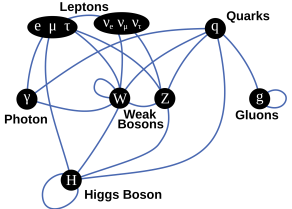 It’s been over a year and a half since my mother died. I’ve definitely moved on to a different stage of grief than I was during the first few months after her death – but as two friends mine have just lost loved ones, and another friend at lunch asked me at point blank range, “Do you believe in an afterlife?” I think the topic is still very much on the table. So let’s talk about life after death.
It’s been over a year and a half since my mother died. I’ve definitely moved on to a different stage of grief than I was during the first few months after her death – but as two friends mine have just lost loved ones, and another friend at lunch asked me at point blank range, “Do you believe in an afterlife?” I think the topic is still very much on the table. So let’s talk about life after death.
First of all, there are a LOT of different viewpoints out there in Christendom about what the afterlife holds. Debates rage about whether or not there is a hell, for instance, and who would or wouldn’t go there. I’m not even going to talk about any of that in this post – sticking at least for this discussion to the side of the afterlife that would be termed Biblically, “Eternal Life.”
But even there, you don’t have to look far to see controversy. Some people hold firmly to the adage, “To be absent from the body is to be present with the Lord.” Others consider that a wrong concept and believe that people who have died are “asleep,” waiting for a physical, bodily resurrection where their Earthly body will get up from its actual gravesite and be changed into something more enduring. Others believe in hybrid scenarios, which involve immediately going to be with the Lord and also being resurrected at a later date, and there are other renditions in the hybrid category besides that, but I’m not going to field all of that, (even though it might make a great blog post sometime.)
Instead, I’m just going to talk about what helped me get through my mom’s death, and what helps me sleep at night knowing the horrifying reality that any person (including me) at any time, could die at any moment. Death is pretty dern scary to me, I’ll admit, probably more so because of the depths to which my analytical sciencey side has compelled me to consider it – and in the week after my mom’s cremains were handed to me for burial, I barely got any sleep without waking up shaking all over in abject terror. (I’m better now, but thanks for the concern.)
Of course, the existential fear of dying is a very self-centered thing, and on the other side of that is the mourning associated with losing someone you love. That’s an altogether difference side of the ugly death coin. My friend who inspired this post asked if I knew any really good books about people who have visited Heaven and came back to talk about it because she wanted to know what her loved one was experiencing. After my mom died, I watched the movie, “Heaven is For Real” and admit that I found it mildly comforting, even though I am always a bit skeptical about the reliability of such accounts. Nevertheless, I’m not going to go into why – in the first few months after losing a loved one, reach for whatever is helpful for your own grieving process.
Nevertheless, there are a few thoughts I want to share that I personally find helpful. My friend Rob just lost his brother and told me a couple days ago that he was walking through a park, looking at a beautiful sunset, and broke down crying as he considered that his brother can no longer see this beautiful sight. I reminded him that we know everything that is beautiful in this material realm is only a shadow, a hint, of what real beauty in the Heavenly places actually is like – and that his brother may be walking through whatever the heavenly fulfillment of the human concept of a “park” is in God’s realm, looking at a sight more beautiful than anything any of us have ever seen, and thinking, “Wow, I am so excited to get to share this view with Rob when his time on Earth is finished.”
 But I have to admit – there’s so much I don’t understand about life after death. There are a few things that hold me together. At my mom’s funeral, some friends asked if they could sing some worship songs and so I thought about what I would want sung – the song I ended up having them sing was Jason Upton’s “In Your Presence.” That’s because there’s one thing I know about God – nothing and no one is out of the reach of His Presence.
But I have to admit – there’s so much I don’t understand about life after death. There are a few things that hold me together. At my mom’s funeral, some friends asked if they could sing some worship songs and so I thought about what I would want sung – the song I ended up having them sing was Jason Upton’s “In Your Presence.” That’s because there’s one thing I know about God – nothing and no one is out of the reach of His Presence.
Psalm 139:8 says,
“If I ascend to heaven, You [God] are there!
If I make my bed in Sheol
[translated sometimes as “the grave,” sometimes as “hell”],
You are there!”
I knew that while I had no way to really be with my mom anymore, that God’s presence was wherever she was – and that His presence was with me as well. And thus, His Presence was the one ‘thing’ still tangible to me in this world that was connecting her and I together.
Other verses that really helped me were this one:
“And Jesus said to them, ‘….they cannot die anymore, because they are equal to angels and are sons of God, being sons of the resurrection. But that the dead are raised, even Moses showed, in the passage about the bush, where he calls the Lord the God of Abraham and the God of Isaac and the God of Jacob. Now he is not God of the dead, but of the living, for all live to him.”
(Luke 20:34-36)
So, along these lines, my thoughts tend to go in one of two directions, that sort of lead back to the same place. The one stream of thought is all about how these verses all are about relationship – and how it’s not some abstract, “afterlife” where it’s just about a soul departing a body in some sense and going…somewhere. Rather, almost every verse I can think of about life after death involves some sort of relationship to God Himself. And ultimately, that’s where my fearful hopes tend to come to rest.
 When the thief who was crucified next to Jesus on the cross said, “Lord, remember me, when you come into Your Kingdom” and Jesus promised to meet him in paradise that very day – the hope is in relationship.
When the thief who was crucified next to Jesus on the cross said, “Lord, remember me, when you come into Your Kingdom” and Jesus promised to meet him in paradise that very day – the hope is in relationship.
When Jesus showed up at Lazarus’s tomb and cried because his friends were crying – and then raised his friend up from the dead – his tears and his voice ringing in Lazarus’s dead /then/ no longer dead ears – his tears and voice speak of relationship.
And when I think of the Christian picture of joining with Christ in His death and resurrection: going with Christ down into the waters of baptism, and being risen up again with Him out of the water – I think of the intimacy accorded of that shared and unifying experience with Him – and thus, relationship.
My science mind asks the other of the two directions of thought, “How can the dead be conscious and alive when their brains are irrevocably and completely damaged and dead? How could brainless consciousness work?” After all, if someone gets in a car accident and part of their brain is damaged, they will be severely hampered in their ability to think and function as they had before. And death is unfortunately, essentially, “total brain damage.”
A friend once wisely reminded me that God thinks without having a physical brain- and speaks to me without a physical mouth – and having experienced hearing His voice and known a few of His thoughts I think my friend is on to something. I can consider God’s nonphysical ability to exist in the whole “ergo cogito sum – I think, therefore I am” dimension of things. I can’t begin to say how, but I can admit that He is and does.
 Unlike material organisms that need to take in chemical energy from physical food to have energy and processes happening in a nervous system, God is Spirit – and thus it is not a stretch to assume He functions as a being by some other means that physical matter and energy beings like us. Spirit is not matter nor energy – spirit is something not that does not seem to be included in this universe’s physics – in fact, if any of my atheist friends read this, they’ll probably call me out for making an unproven assertion and consider the very concept of “Spirit” to be mythical.
Unlike material organisms that need to take in chemical energy from physical food to have energy and processes happening in a nervous system, God is Spirit – and thus it is not a stretch to assume He functions as a being by some other means that physical matter and energy beings like us. Spirit is not matter nor energy – spirit is something not that does not seem to be included in this universe’s physics – in fact, if any of my atheist friends read this, they’ll probably call me out for making an unproven assertion and consider the very concept of “Spirit” to be mythical.
But if you’ve encountered the Lord’s Spirit via your spirit, then the concept that God is Spirit will not seem strange to you. So the most I can guess at with my tiny understanding of God’s hypothesized Spirit ‘biology’ is that we can roughly say that His self-existent nature would mean He exists of His own self-existent means. This has a huge bearing on what “eternal life” then might be.
The ‘energy’ that powers God’s life is generally considered to be God Himself – there’s a generally understood belief that He is self-sufficient for self-animated existence, eternally. This undying power or life force that consists of His own being powering His own being eternally, also goes by another more recognizable term in the Bible -life, or “eternal life.” (Gene Edwards in one of his better books talks about this.)
I would venture that “Spirit” is comparable to a pattern, an informatic – except in God’s case, His Spirit is comprised of a self-sustaining, living pattern. But what about you, me, or any of our loved ones? As I think about it – all it would take really for me or anyone else to go on existing and thinking without a physical body – is for God to remember me – just like the guy on the cross asked Jesus to do for Him. Our own Spirits may not contain the self-sustaining power that God’s does, but that is where Jesus comes into the picture as the bridge – the imparter – of God’s life force to us.
 If my thought patterns are preserved in His memory somewhere – or if a my “spirit” contains that pattern and then just goes to Him – He can definitely work with that. He can reboot me. He can run that data in His already-living program of His own substance. In short, He can share His own life-force: the eternal, undying, sustaining Being that He is, with my pattern – my Spirit. IN fact, the promise for us who have believed in Him is that we have already been joined to His essence – His eternal life – within our own beings, and thus we cannot die. Him in us (the power of life) and we in Him (our pattern – our minds and beings) results in our existence being settled by being one – in relationship, with Him.
If my thought patterns are preserved in His memory somewhere – or if a my “spirit” contains that pattern and then just goes to Him – He can definitely work with that. He can reboot me. He can run that data in His already-living program of His own substance. In short, He can share His own life-force: the eternal, undying, sustaining Being that He is, with my pattern – my Spirit. IN fact, the promise for us who have believed in Him is that we have already been joined to His essence – His eternal life – within our own beings, and thus we cannot die. Him in us (the power of life) and we in Him (our pattern – our minds and beings) results in our existence being settled by being one – in relationship, with Him.
And so – I wonder – is life after death really a matter of living IN, and BY Him? If it is, we’re right back at the place of intimacy – connection – relationship – as the operative element in obtaining “resurrection” and life after death. In the book of Revelation at the end of the Bible – instead of the light of the sun we have the Lamb’s light – instead of energy derived from chemical reactions from food we have God as our energy source, our life – which is what Jesus said we could receive from participating in His own being. He called this partaking of His flesh and blood.
Animating and Energizing our own inner Spirit beings – both while we are here in physical bodies, and then once we no longer have a living physical body – is it really just all about connection with Him in the most profound, interconnected, integrated, Spirit to spirit and heart to heart sort of way? What does it mean for the faith to be made sight, anyway – unless everything we experience as beings becomes completely summed up in knowing Him in the most tangible, everything-is-part-of-Him, sort of way?
 These are the ideas that keep this sciency charismatic gal in a place of hope despite the impending reality that my complete physical reality will one day be destroyed – and the hope is that when that occurs, death will be defeated in each of our lives by Jesus’s power. Even though I admit I still wrestle with fear at times, my hope is that in relationship with Jesus the Son of God, He who Is Immortal Himself will cloth Me with His own immortality. And also you. And anyone else who looks to Him as the way, the truth, and the Life.
These are the ideas that keep this sciency charismatic gal in a place of hope despite the impending reality that my complete physical reality will one day be destroyed – and the hope is that when that occurs, death will be defeated in each of our lives by Jesus’s power. Even though I admit I still wrestle with fear at times, my hope is that in relationship with Jesus the Son of God, He who Is Immortal Himself will cloth Me with His own immortality. And also you. And anyone else who looks to Him as the way, the truth, and the Life.
After all, if you’ve entrusted yourself to Christ – you’re already dead in some sense, and the real living-forever part of you is already on deposit with Him.
“Set your mind on the things above, not on the things that are on earth. For you have died and your life is hidden with Christ in God. When Christ, who is our life, is revealed, then you also will be revealed with Him in glory.…” (Colossians 3:2-3)
The never-end.
Amen.

January 5, 2016 at 6:57 pm
Reblogged this on James' Ramblings.
LikeLike
January 5, 2016 at 8:19 pm
Heather, after my wife died in 2010, I posted this similar essay on my blog. It is interesting how that losing a loved one tests our belief in an afterlife like nothing else will. C.S. Lewis reports that he never had any problem believing in the afterlife until that fateful moment when he lost Joy. Then, for awhile, he completely lost his afterlife belief. He wrote something like “Its all very different when your everything is on the line.”
http://cliff-martin.blogspot.com/2010/08/what-is-heaven-like.html
LikeLike
January 5, 2016 at 8:30 pm
We are so on the same wavelength, Cliff. Thanks for posting your link here. And…time for you to get back to bloggin!
LikeLike
January 5, 2016 at 9:32 pm
Due to a strange string of events involving my ISP and gmail, I have lost access to my blog, and every other Google-based service. I can only access my blog as any other reader can. It is disheartening, (actually … it makes me quite angry) … and I have lost the desire to blog. Maybe I will again some day.
LikeLike
August 28, 2016 at 5:46 pm
I have just posted about this subject …I too am trying to come to terms with my Mum’s death, a year and a half ago.
LikeLike